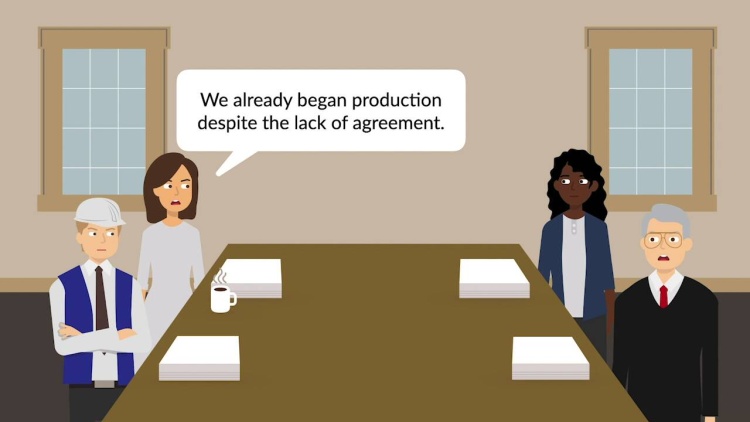Cyberchron Corp. v. Calldata Systems Development, Inc.
United States Court of Appeals for the Second Circuit
47 F.3d 39 (1995)

- Written by Christine Hilgeman, JD
Facts
In 1989 and 1990, Cyberchron Corp. (Cyberchron) (plaintiff) negotiated with Calldata Systems Development, Inc. (Calldata) (defendant), a subsidiary of Grumman Data Systems Corp. (Grumman) (defendant) to develop customized equipment for Grumman’s contract with the United States Marine Corps. Grumman provided a purchase order to Cyberchron, setting terms for the weight of the equipment. Cyberchron never agreed to the purchase order, but Calldata representatives promised in mid-July that the weight issue would be resolved as long as Cyberchron continued to develop the equipment. The parties were ultimately unable to agree, and despite Calldata’s promise, Calldata and Grumman negotiated with other suppliers in mid-August and, after abruptly terminating the purchase order with Cyberchron on September 25, 1990, entered an agreement to purchase an inferior version of the equipment from another supplier. Cyberchron sued Calldata and Grumman for breach of contract, quantum meruit, and promissory estoppel. The trial court dismissed the breach of contract and quantum meruit claims, and awarded damages to Cyberchron for material and labor costs incurred between July 15 and September 25. However, the trial court refused to award damages for overhead and shutdown expenses. Both parties appealed the promissory estoppel ruling, and Cyberchron appealed on the issue of damages.
Rule of Law
Issue
Holding and Reasoning (Mahoney, J.)
What to do next…
Here's why 910,000 law students have relied on our case briefs:
- Written by law professors and practitioners, not other law students. 47,100 briefs, keyed to 997 casebooks. Top-notch customer support.
- The right amount of information, includes the facts, issues, rule of law, holding and reasoning, and any concurrences and dissents.
- Access in your classes, works on your mobile and tablet. Massive library of related video lessons and high quality multiple-choice questions.
- Easy to use, uniform format for every case brief. Written in plain English, not in legalese. Our briefs summarize and simplify; they don’t just repeat the court’s language.





